On July 22nd, as part of Plastic Free July, Green Action Centre is inviting you to join us in writing letters to Grocery Stores, letting them know how important it is that they work towards single-use plastic reduction. This come and go event takes places between 6:30 – 8:30pm.
Manitobans can attend the in-person event we are hosting at the Eco-Centre in Winnipeg (3rd Floor of 303 Portage Ave.) or write a letter from their own homes. Community members outside of Winnipeg are also encouraged to host letter-writing events in their own communities.
Some key issues we see in grocery stores surrounding single-use plastic waste:
- Although purchasing locally grown, fresh produce is ideal, we recognize that the reality of living in Manitoba often means purchasing vegetables and fruit at grocery stores during certain months of the year. This produce typically comes wrapped in unnecessary packaging that is destined for the landfill (or water systems).
- It’s much easier to find single-use plastics for sale (sandwich bags, plastic wrap, plastic straws) at grocery stores than more sustainable, alternative options (reusable sandwich bags, beeswax wrap, reusable straws).
- Cashiers typically default to putting items in single-use plastic grocery bags, even if it’s just one item that’s easy for the customer to carry. We believe that if grocery stores are unwilling to implement a bag fee or a bag ban, they should, at the very least, transition to a “bags upon request” policy.
- Many grocery stores don’t offer bulk sections to purchase dry goods in, and those that do are often hesitant to allow you to make the purchase in your own reusable bag/container. Grocery stores need to have better systems in place for purchasing dry goods using your own bag/container. Additionally, grocery stores need to do a better job of allowing customers to tare their bags/containers prior to filling them to ensure they’re not paying for the added weight of the container.
Why is reducing plastic waste so important?
- Plastic is made from petroleum products. As we face the dire realities of climate change and learn about the importance of reducing our reliance on fossil fuels, we need to think about decreasing the use of materials that are dependent on resource extraction.
- Plastic takes a very long time to break down and even then, microplastics are always left behind. These microplastics, which never fully go away, are littering our soil, oceans and bodies at an alarming rate.
- There is too much plastic for us to solve the problem through recycling. A lot of plastic is challenging to recycle and given how much is available, the market for it is low. You know there’s too much plastic when the countries we are shipping our recycling to are sending it back.
Requests for grocery stores:
- Charge for bags or completely discontinue distributing them. If neither of these are options your grocery is willing to consider, then you should, at the very least, only offer bags upon request.
- Discontinue ordering product from distributors who wrap their products in copious amounts of plastic or require that they send the produce without the added plastic packaging. Find alternative sources that produce less waste.
- In isles where single-use plastic items are for sale (sandwich bags, straws, plastic wrap), ensure there are always reusable options for sale as well (reusable sandwich bags, reusable beeswax wrap, reusable straws).
- Offer most, if not all, of your dry products in bulk to ensure that people can bring products home in their own reusable containers rather than bringing the products home in single-use plastic packaging.
- Allow customers to tare their bulk containers (either at the checkout prior to filling their containers or directly in the bulk section) so they do not need to pay for the added weight of the container.
- Want to offer bulk pricing for a larger quantity of oranges or apples? That’s great, but please allow customers to receive the same price on the fruit if they bring their own bag. It’s unacceptable that it’s cheaper to make a purchase of fruit wrapped in copious amounts of plastic than it is to bring the fruit home in your own produce bag.
Where to send your letter?
We’re encouraging you to send your letter to three locations:
- Drop your letter off in person, addressed to the store manager. Ensure all letters are in a sealed envelope to increase the likelihood of landing on the store manager’s desk. Have friends and family who shop at the same store as you? Gather up letters from them as well and drop them all off.
- Email (or fill out an online contact form) a copy of the letter to the store’s head office. You can typically find contact information and contact forms on the store’s corporate websites.
- Send a copy of all letters to John Graham, the director of the Retail Council of Canada’s Prairie Office (jgraham@retailcouncil.org).
Of course, most grocery stores could also do a better job of combating food waste, carrying more local, sustainable products, and offering incentives for the use of sustainable transportation. But these requests may be for a different day.
SAMPLE LETTERS: Option 1 | Option 2
Is your local grocery store doing a good job of reducing plastic? Be sure to let them know you appreciate their efforts.
NOTE: If you feel comfortable taking photos of heavily wrapped produce (or other plastic wrapped items) at your local grocery store, we encourage you to send those photos along with your letter.
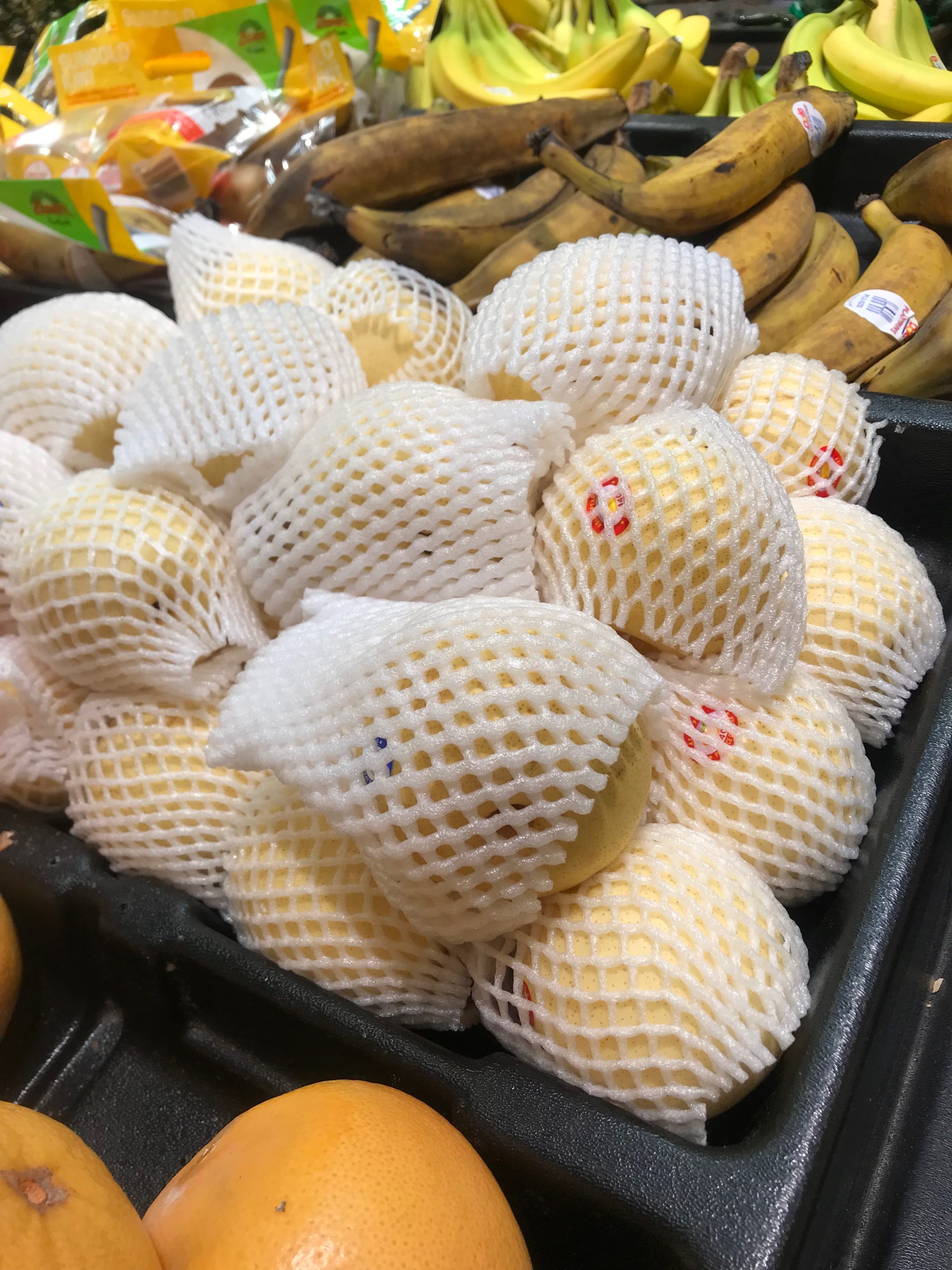
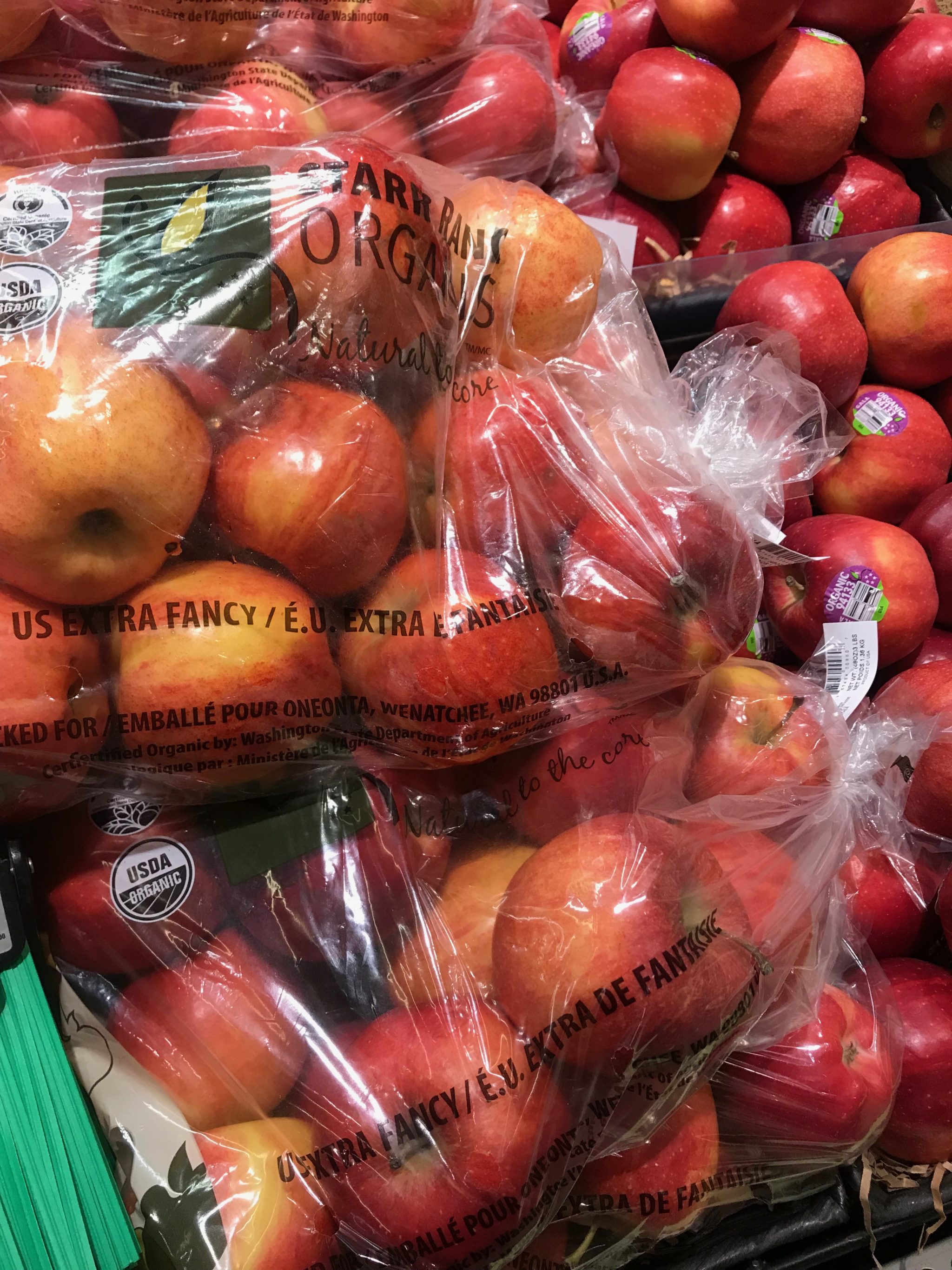
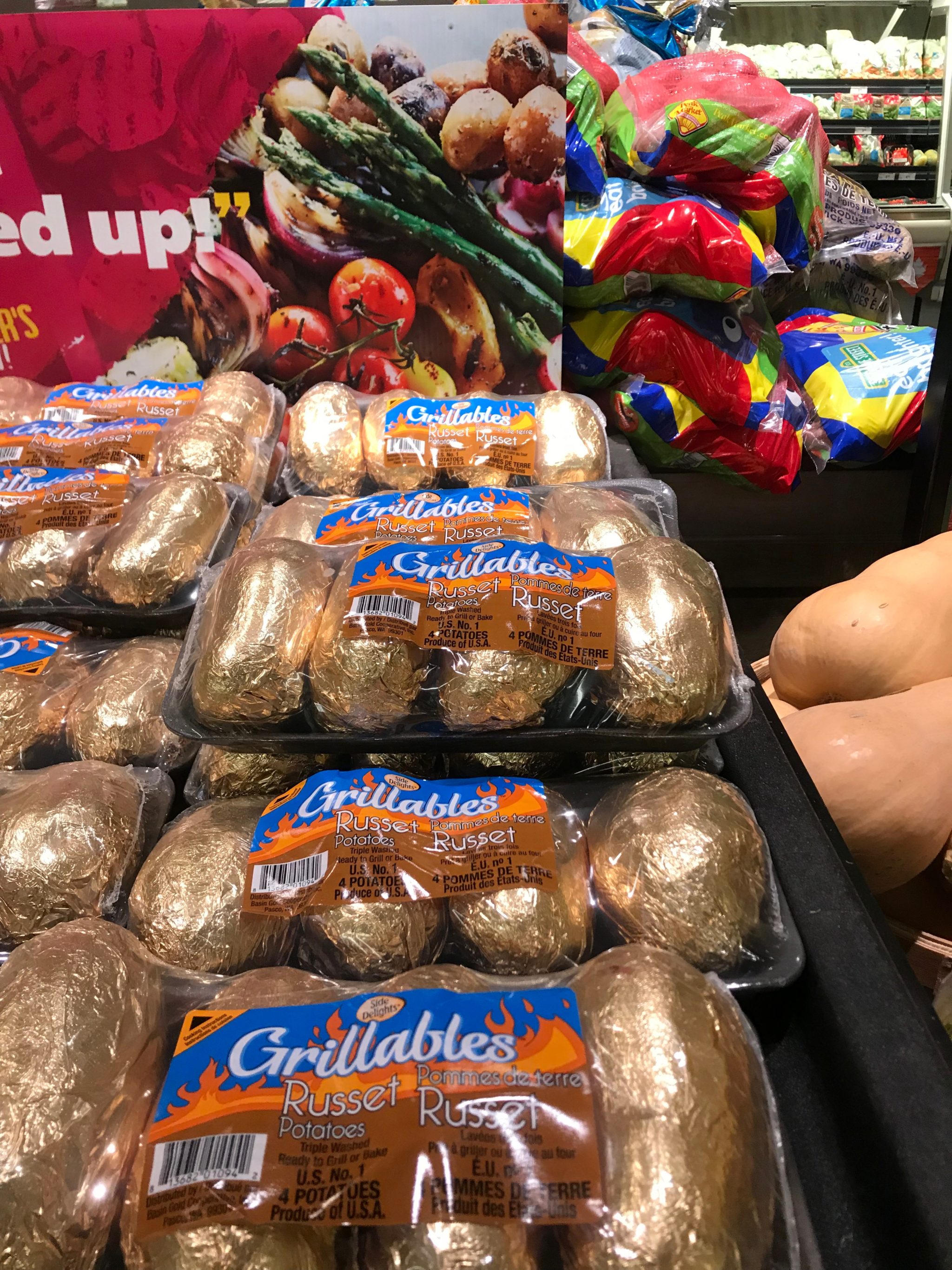
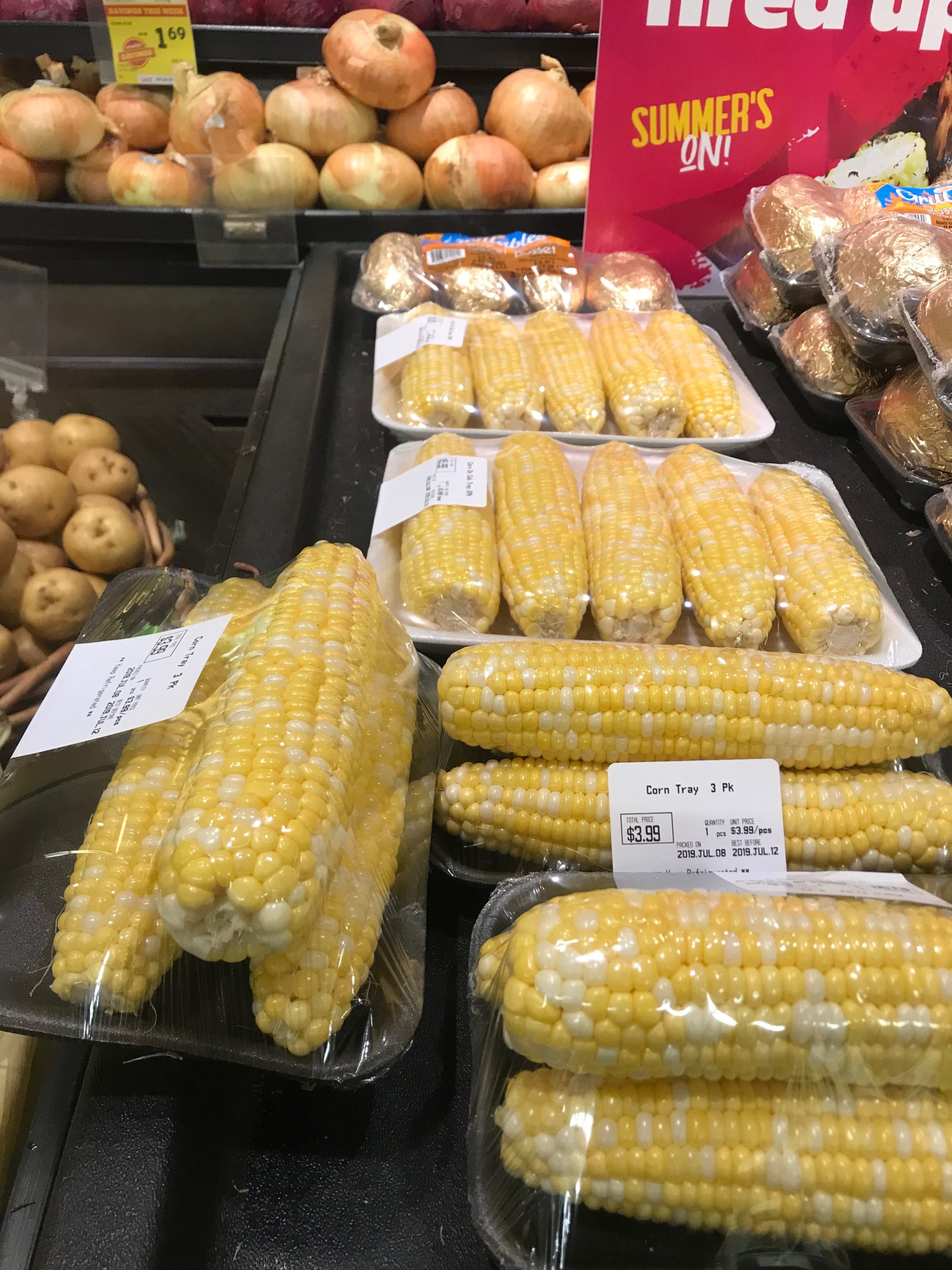
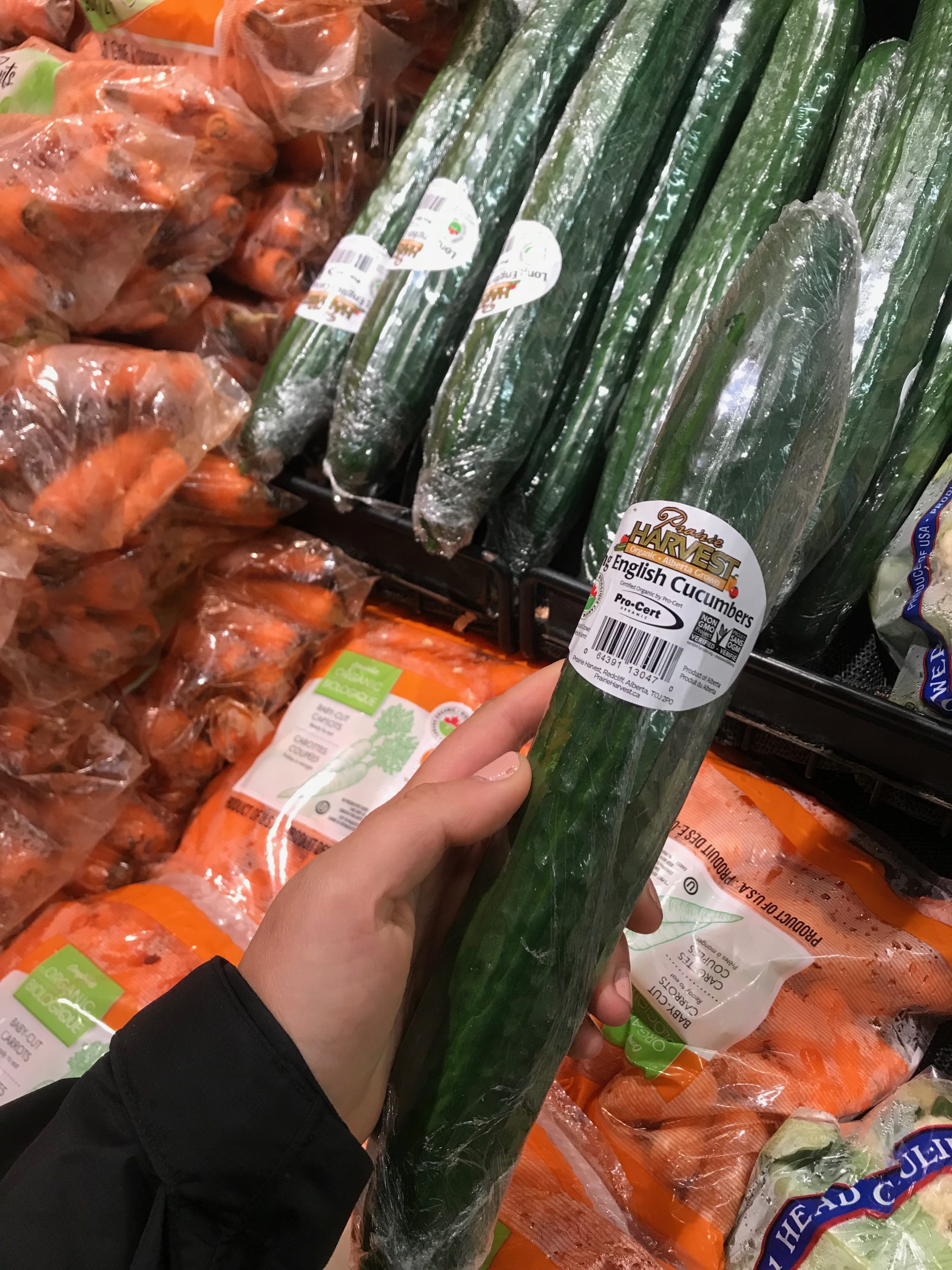

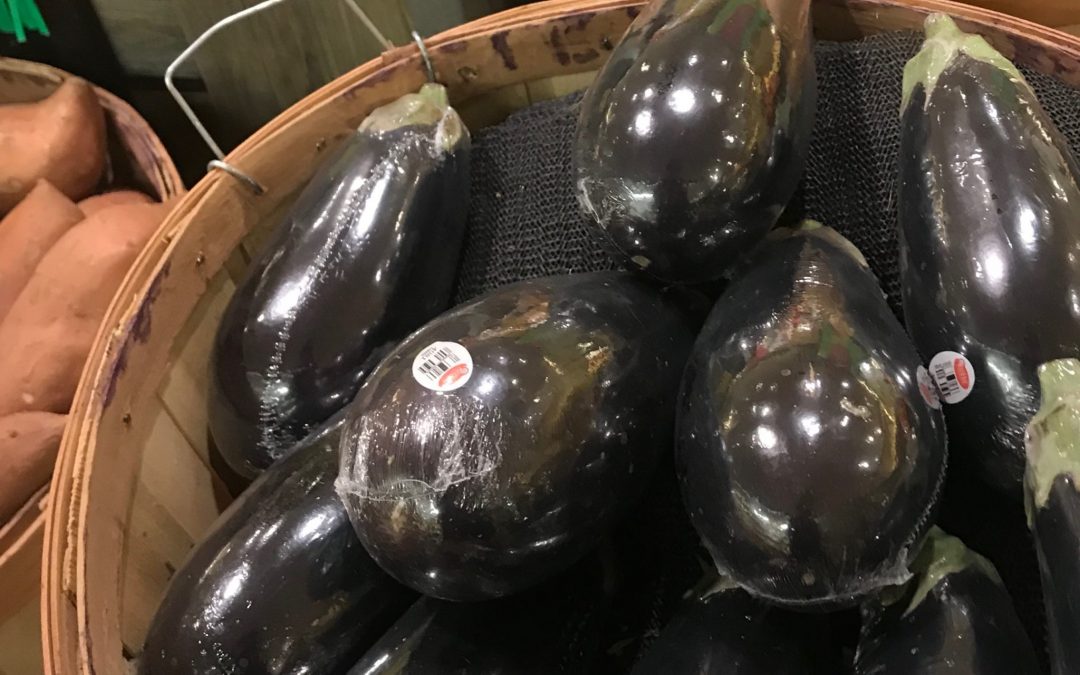


How do I calculate this type of statistic for my county in Washington state?
The amount of plastic we use adds up. Retail plastic bags in Manitoba alone uses crude oil resources equal to over 2-million (2,261,760) liters of gas each year. That is enough for 27-million (26,903,040) kilometres of city driving or 37-million (37,021,440) kilometres on the highway. This is a tremendous amount of carbon pollution.
This is my letter to Costco, highly inspired by your letter to grocery stores:
Thank you for providing me with quality products at competitive prices. It is why I continue to shop at Costco.
I really appreciate the opportunity to buy milk products in paper cartons (with minimal plastic) and cardboard packaging. Thank you!
That said, I am shocked every time I shop at Costco with how many single-use plastic products are sold at Costco and how many products are wrapped in copious amounts of plastic.
Between two products, I always choose the item with less/no plastic packaging.
I have switched from purchasing products that are packaged in plastic bottles, (such as shampoo, hand soap, laundry and dish detergent,) to plastic-free alternatives and I am actively searching for more plastic-free options. Sometimes I pay more but it feels wonderful to take small steps towards a cleaner world for future generations.
Perhaps you are aware of the following:
• Plastic is made from petroleum products and plastic production is a significant contributor to carbon emissions. Amidst this climate crisis, it is essential that we reduce our reliance plastic as much as possible as urgently as possible.
• Plastic never goes away. Rather, it breaks down into micro-plastics which litter our soil, water, and every species of animal, including humans.
• 40% of all plastic produced is single-use plastic and only 9% gets recycles. Much of that is unnecessary waste that could be replaced with reusable alternatives.
My request to you today – please commit to drastic reductions of single-use plastic.
Please explore companies such as Dropps and Blueland. They have created plastic-free cleaning products that are very satisfying to use. It would be thrilling to see Kirkland cleaning products re-formulated to this high degree of sustainability and presented to the massive Costco market.
Costco has the power to create sustainable alternatives in the Kirkland brand, and the power to demand sustainable alternatives from manufacturers of products sold at Costco.
Please be a leader in environmental and climate sustainability. If Costco leads in environmental stewardship, other large companies will follow.
I am a shareholder and regular customer at Costco.
Thank you,
Suzanne Schroeder
We do not inherit the world from our ancestors. We borrow it from our children.
Good stuff! I found your page because I am gathering inspiration to write to Costco (again!) to pressure them into reducing their plastic packaging.
May I recycle (copy/paste) one of your paragraphs?
Nicely done!
Suzanne
Thank you for sharing your letter writing, and for asking for change! Folks are welcome to use our suggested wording.